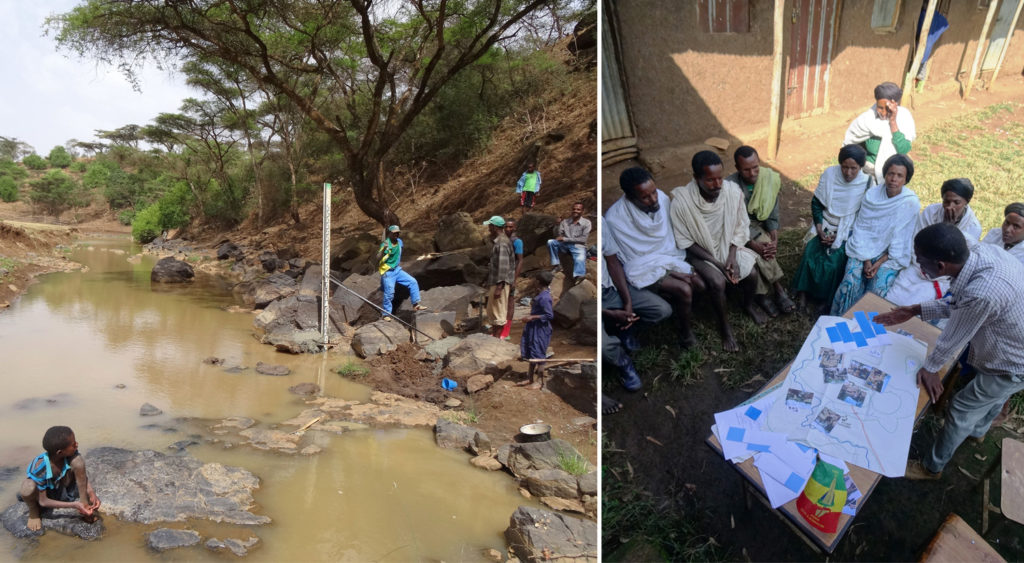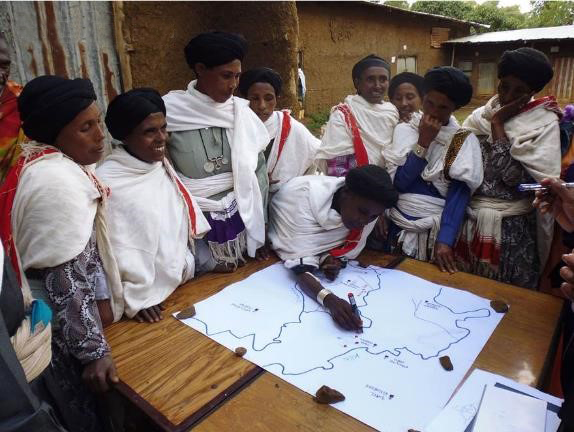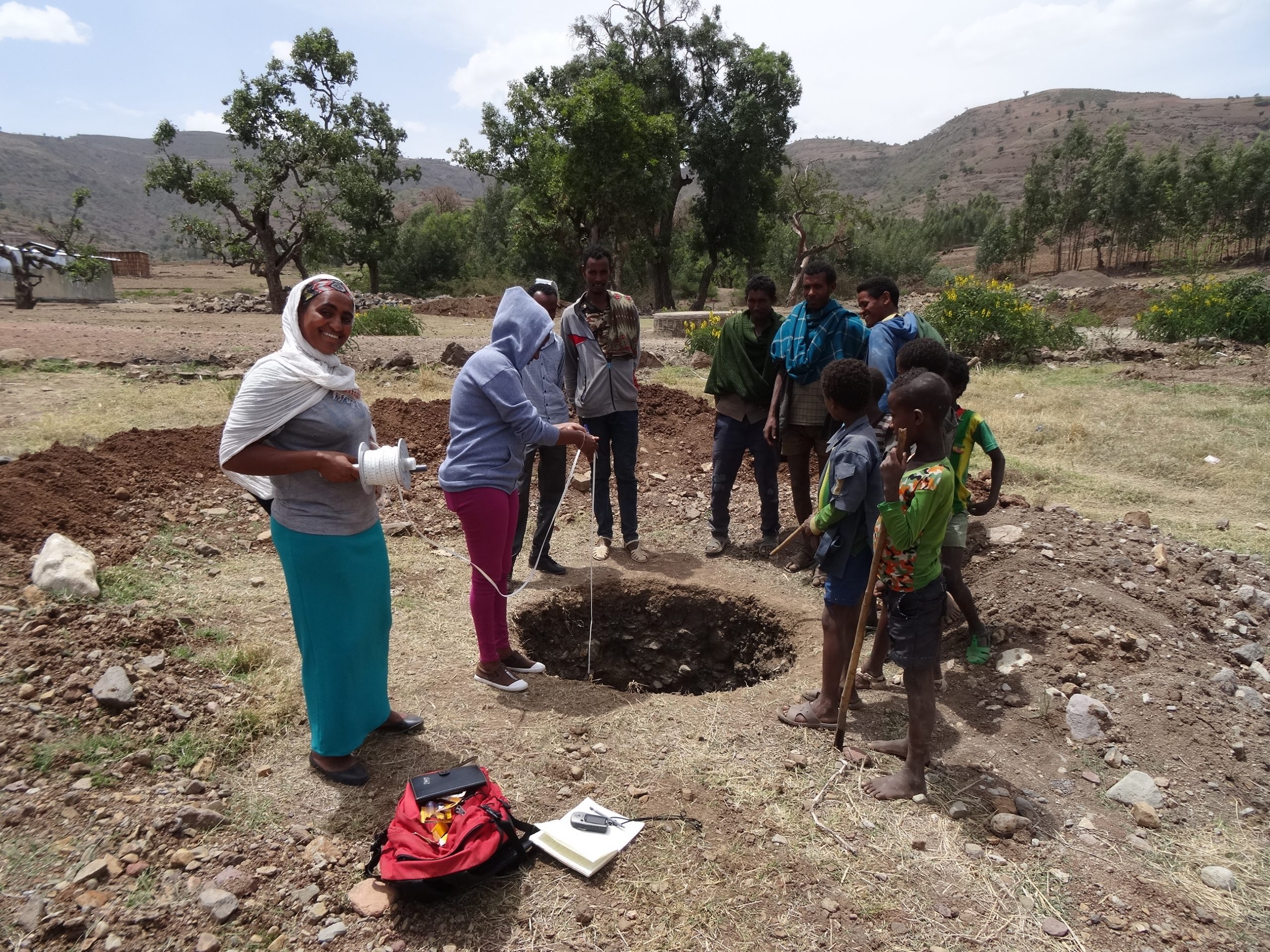John Gowing (Newcastle University), Geoff Parkin (Newcastle University), David Walker (Newcastle University) & Alemseged Tamiru Haile (International Water Management Institute)
Citizen science is the practice of active public involvement in research to increase scientific knowledge. Across Europe and North America an increasing number of ordinary members of the public are donating time to help with scientific investigations, most of which focus on the environment and biodiversity. This may involve collecting quantitative data on birds and butterflies, or on air pollution and water quality, or on a wide range of other environmental indicators. Increasingly, government institutions and international organizations are recognising its utility and legitimacy and are incorporating citizen science in their routine work. So, what is the prospect for people-powered research in Africa and does it have a role in delivering sustainable development?
Public participation is nothing new in this context; since the 1970s participatory methodology has been widely adopted in development practice. Accumulated experience led to growing recognition that “experts” do not have a monopoly on knowledge and local (indigenous) knowledge has value. However, the focus has been on qualitative data and the challenge is to use participatory methods to generate quantitative data. Scepticism over the quality of such data collected by non-experts leads to concerns within government institutions over the legitimacy of citizen science. Inclusivity is also a challenge; it can be difficult to involve local people where literacy rates are low and where gender relations restrict the participation of women.

(photo credit: David Walker)
We have been exploring these issues in Ethiopia since 2014 in the context of efforts to promote the participation of disadvantaged rural communities in the management of the natural resource base that sustains their livelihoods. The particular concern is that water security for the rural poor is mainly determined by access to shallow groundwater and is strongly connected to initiatives which aim to deliver environmental change through participatory watershed development. Proper understanding of the issue cannot be achieved through ‘snap-shot’ surveys, but requires continuous time-series data on rainfall, river flow and groundwater levels. Without adequate data the current status cannot be quantified and the impact of sustainable land management interventions cannot be measured. We have shown that citizen science can fill the data gap.

We have worked with local communities at two sites in Ethiopia’s Amhara region and two sites in the Southern Nations, Nationalities, and Peoples’ region to gather daily data on rainfall, river flow and groundwater levels. We have demonstrated the reliability of the data gathered by local citizen scientists and explored its value and use in developing their understanding of hydrological processes affecting groundwater availability.
We have worked with local communities at two sites in Ethiopia’s Amhara region and two sites in the Southern Nations, Nationalities, and Peoples’ region to gather daily data on rainfall, river flow and groundwater levels. We have demonstrated the reliability of the data gathered by local citizen scientists and explored its value and use in developing their understanding of hydrological processes affecting groundwater availability.
We have studied participation of women in watershed development decision-making processes and revealed inclusivity challenges in citizen science in this context. Women place a high value on groundwater and could be motivated to play a greater role in governance of the resource. However, the constraints they face curtail their effective participation and leadership without specific interventions. This is reflected in our findings on women’s willingness to participate in groundwater monitoring, as well as some men’s reluctance to allow their wives to participate. A gender-sensitive approach is recommended to support an inclusive citizen science initiative on environmental monitoring.
We have worked closely with staff at different levels within the Ministry of Agriculture & Natural Resources (MoANR) who are responsible for implementing a national programme of sustainable land management interventions. This has resulted in recognition of the value of citizen science and led to joint preparation of guidelines for embedding this approach within future MoANR activities (view in the reference list below). The experience has influenced design of two major initiatives implemented by MoANR:
- The Resilient Landscapes and Livelihoods Project will run from 2019 to 2024 and will support the restoration of degraded landscapes in selected watersheds and help build resilient livelihoods on this newly productive foundation.
- The Participatory Small-scale Irrigation Development Programme II will run from 2017 to 2021 and will improve the access of farmers to a small-scale irrigation and enhance climate-smart agricultural intensification in the adjacent watersheds. Both projects will include hydrological monitoring in selected watersheds and will build upon our experience with citizen science.
The research will be extended through the UKRI GCRF Water Security and Sustainable Development Hub. We will continue our citizen science activities in all existing sites and expand it to the central rift valley basin, Lake Ziway area. In addition, we will further develop the citizen science approach for water quality mapping.
Water security risk science: local knowledge for participatory resource management is one of five accelerated grants funded through REACH Partnership Funding.
Further reading:
Walker, D., Haile, A.T., Gowing, J., Forsythe, N., Parkin, G. (2019). Guideline: Selecting, training and managing para-hydrologists. REACH Working Paper 6, University of Oxford, Oxford, UK.
Walker, D., Haile, A. T., Gowing, J., Legesse, Y., Gebrehawariat, G., Hundie, H., Berhanu, D., and Parkin, G. (2019). Guideline: Community-based hydroclimate monitoring. REACH Working Paper 5, University of Oxford, Oxford, UK.
Nigussie, L.; Barron, J.; Haile, A. T.; Lefore, N.; Gowing, J. 2018. Gender dimensions of community-based groundwater governance in Ethiopia: using citizen science as an entry point. Colombo, Sri Lanka: International Water Management Institute (IWMI).

